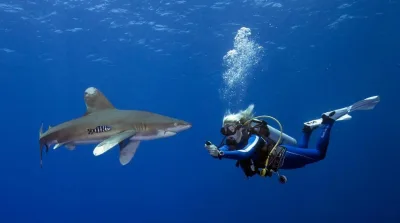Cuvier’s beaked whales have long been a source of mystery for marine scientists, spending much of their time out in blue, diving to depths of around 3000m in search of squid. These incredible creatures are thought to spend just a couple of minutes on the surface between dives, meaning much of the lives remain a mystery to researchers.
But, as reported by BBC News, a recent study managed to record one particular Cuvier’s beaked whale diving for almost four hours, smashing the previous record of just over two hours!

The study followed 24 Cuvier’s beaked whales over five years and documented over 3,600 dives. Having recorded many individual dives lasting around two hours - long past the point an animal of this size should run out of oxygen - the researchers behind the study believe these whales may be better adapted to holding their breath than other species. A very low metabolism, a high lactic acid tolerance, and larger oxygen stores within their muscle tissues are all possible characteristics that help Cuvier’s beaked whales dive for so long.
But, the team also admits that humans could have played a part in the longest dive ever recorded, as it took place just 24 days after the whales were exposed to a US Navy active sonar signal. Cuvier’s beaked whales are sensitive to sonar and are known to stay deep for extended periods to avoid predators.
Even so, this research has some interesting applications to humans. Dr Nicola Quick, from Duke University in Durham, US, ran the study and suggests her findings could help in the fight against illnesses such as cancer and Covid. "There's some interest in working with colleagues in oncology... and even with Covid, as that involves cells losing oxygen or being in hypoxic conditions," she says. "So if these whales are in these hypoxic conditions in their tissues, and if we can find out what they were doing, then could that have some other implication for human health"?



